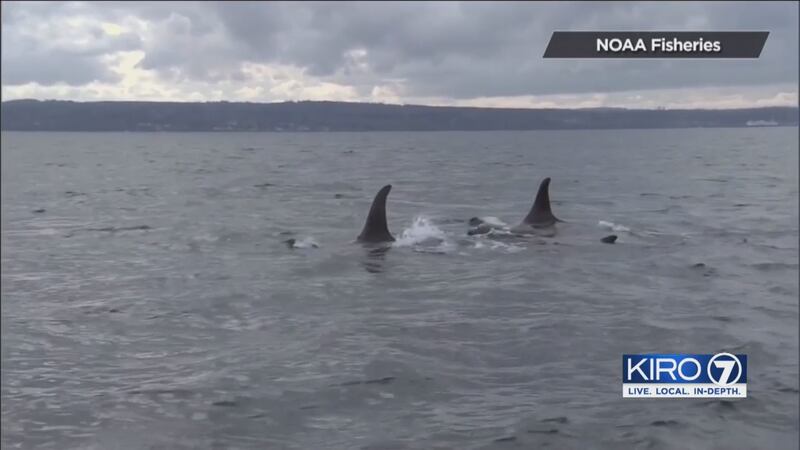SEATTLE — The state’s Southern Resident Killer Whale Task Force has recommended a temporary ban on whale watching.
The southern residents that call the Pacific Northwest home have dwindled to just 74 which is the lowest the population has been in more than three decades.
But Christopher Hanke, operations manager with Puget Sound Express doesn't think a suspension on viewing of the iconic orcas is the answer.
“I think it is disappointing and really distracting,” Hanke said.
>>RELATED: Conservation group launch lawsuit to establish 'protection zone' for edangered orcas
The recommendation from the task force says it would “establish a whale watching regulation that precludes southern resident orca viewing by all boats in Puget Sound for the next 3-5 years.”
The idea is that it would reduce boat traffic and help orcas look for food.
“It's not going to help the whales,” Hanke added. “It’s going to distract from the real problem which is fish.”
Scroll down to continue reading
More news from KIRO 7
- Two men shot at Kent scrap metal yard
- Seattle adding public toilet to Ballard park for $550,000
- Washington gun initiative passes
- Jurors convict dad under an hour in baby's diaper rash death
- Do you have an investigative story tip? Send us an email at investigate@kiro7.com
He also says the Pacific Whale Watch Association, which is made up of 32 whale-watching and ecotourism companies in Washington and Canada, has already taken measures to address noise.
“The biggest way to mitigate noise around whales is speed. So, one protocol we have, that is actually being adopted by the task force, is whenever we are within a kilometer of any whale species, we slow down to 7 knots,” Hanke explained.
Conservationist Michael Harris said he pushed for a ban on viewing southern residents back when he was head of the Pacific Whale Watch Association.
“It's time to take a step back with these whales. And give them some space and let them recover,” Harris said.
Hanke says most of the tours focus on other whales like humpbacks which are thriving. Right now, southern residents only make up about 10-15% of their tours.
KIRO 7 asked why be opposed if it’s a small part of their business.
“Because like I said, it distracts from the real problem, which is fish,“ Hanke answered.
According to a 2015 study by University of Washington, the Pacific Whale Watch Association generated $144 million a year to Washington and British Columbia.
Hanke and other members of the association said they're also upset because they feel the recommendation was an 11th hour proposal that was passed without public input.
Under the recommendation, Washington Department of Fish and Wildlife would enforce the possible ban. KIRO 7 reached out to them and they said they are just starting to work on the details on how this would be enforced.
Associated Press








